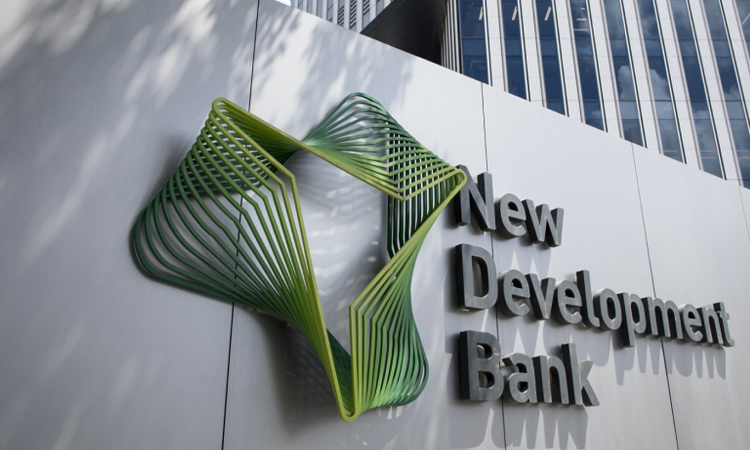News Flash

DHAKA, May 26, 2025 (BSS) - The New Development Bank (NDB), a multilateral development bank, has expressed commitment to work closely with Bangladesh and finance infrastructure and sustainable development projects that support its national development objectives and commitments under the SDGs.
The bank, established by Brazil, Russia, India, China and South Africa (BRICS), also observed that the cooperation between NDB and Bangladesh, which joined the bank in 2021, is growing.
The bank made the observation today at a daylong seminar on “Transforming Development: Building a Culture of Accountability through Evaluation, Auditing, and Ethics”.
The seminar highlighted NDB’s approach to sustainable development through integrated evaluation, audit, and compliance systems. With over 150 participants—including senior level policymakers, development experts, private sector leaders and others—it served as a dynamic platform for cross-learning among emerging economies.
The Economic Relations Division (ERD) of the Ministry of Finance and the New Development Bank's (NDB) Independent Evaluation Office (IEO) Internal Audit Department and Compliance and Investigations Department co-hosted the high-level seminar in the city focused on embedding accountability, evaluation, and integrity at the heart of development projects-key pillars for delivering on Bangladesh's growth priorities.
Opening the event, Dr Salehuddin Ahmed, Adviser of the Ministry of Finance, underscored Bangladesh’s commitment to strengthening governance in public investment.
“The foundation of sustainable development rests on three pillars: accountability, transparency, and ethical governance. These are not abstract ideals-they are practical necessities. Evaluation, auditing, and compliance are the tools that help us build these pillars. They ensure that our policies and projects do not merely exist on paper, but deliver real, tangible benefits to our citizens,” he added.
Md Shahriar Kader Siddiky, Secretary of the Economic Relations Division (ERD), said, “We must learn from international experiences and adapt global best practices to our own context. The presence of distinguished experts and partners from the New Development Bank, as well as from key ministries and agencies, is a valuable opportunity for dialogue and knowledge exchange.”
Ashwani K. Muthoo, Director General of Independent Evaluation Office (IEO) of NDB, said NDB looks forward to deepening relations with the Bangladesh government and other agencies.
"Bangladesh is in the process of introducing a 'National Project Evaluation Policy'. We are ready to provide support on it for finalizing the policy," he added.
The one-day event featured keynote addresses from global leaders in development policy.
Nobel Laureate economist Abhijit Banerjee, professor of the Massachusetts Institute of Technology, emphasised the value of evidence-based policymaking and timely impact evaluations in ensuring that development investments deliver real results.
Dr Rania A. Al-Mashat, Egypt’s Minister of Planning, Economic Development and International Cooperation, and NDB Governor, shared her country’s efforts to strengthen project transparency through digital monitoring platforms, offering insights relevant to fast-growing economies like Bangladesh.
Participants also explored key themes including the role of evaluation in accelerating the achievement of the United Nations’ Sustainable Development Goals (SDGs), private sector engagement in development interventions, risk-based internal auditing, and ethical standards in development finance. These sessions were led by senior officials from NDB and enriched by perspectives from international partners such as the Asian Development Bank, the Department of Planning, Monitoring and Evaluation of South Africa, the Ministry of Finance, Brazil, and the International Fund for Agricultural Development.
“Good development isn’t just about how much is built, but how well it lasts—economically, socially, and institutionally,” said Henrique Pissaia, Principal Professional Specialist at NDB’s Independent Evaluation Office.
“This seminar showed that accountability and learning are catalysts for better results.
Bangladesh’s leadership in this space reflects our shared commitment to making learning, ethics, and South-South knowledge exchange central to impact-driven development,” he added.